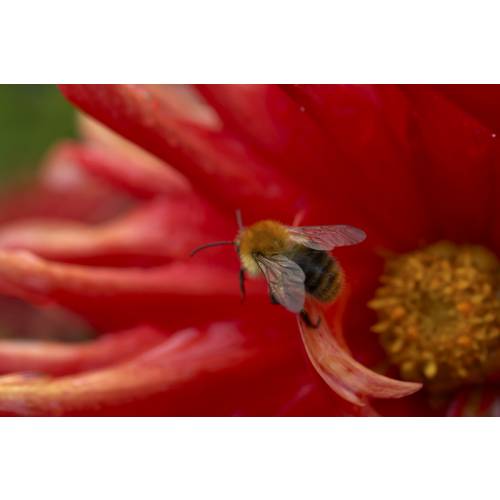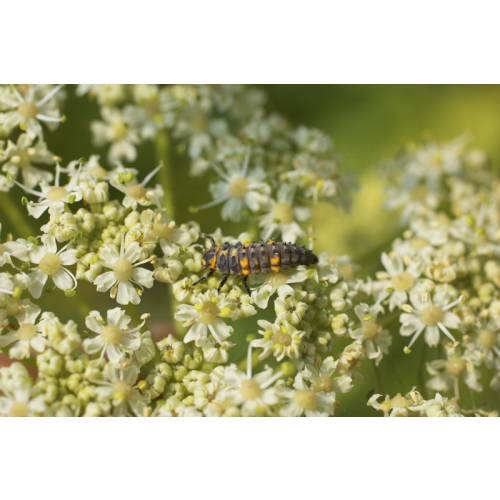
Ecological Garden
The gardenerís helpers
- Details
-
Your garden is full of friends! Discover some of these inhabitants that help you without you knowing. By protecting them, you are guaranteeing yourself a garden that is more natural and easier to care for!
The nectar gatherers
Without them you would not have many apples or courgettes to harvest ! These nectar gatherers are the insects that you see frequenting the flowers, from the common bee through to butterflies, not forgetting the bumblebees, beetles, flies and certain small wasps! They represent a swarming mass of wildlife but one that is very useful. By varying the plants that you grow, you will offer a home to a greater number of these nectar gatherers. Not only will your garden be livelier but your plants will also be better fertilized. Of course, after the flower there is often the fruit that you can bite into...
Predators of biting insects
They patrol on the stems and hunt everything from aphids to bugs that steal the sap from your plants. The ladybird is one of the most well known, but have you ever paid attention to her larvae? They have an even more voracious appetite for aphids than the adults do. Other insects also contribute to the organised clean up such as larvae of the Syrphid fly (a fly that looks like a small wasp but which is inoffensive), the common green lacewing (chrysoperla), common wasps, predatory flies, etc. Predatory bugs also appreciate the eggs of biting insects and caterpillars. If can avoid treating plants that do not really need it you will help preserve these helpers.
Slug predators
They fly to the rescue to save your tender young shoots! There are firstly the carabi, which are splendidly coloured beetles. Then the birds like the thrush and blackbird, which will always lend a hand. You probably find now and again a snailís shell next to a stone, well it is quite likely that it was a thrush that dined there. It is even a good idea to put a nice flat stone in full view of the birds so that they can come and help you get rid of the snails. However, these mollusks have other enemies: frogs, toads, moles, shrews and slow worms just to cite a few. Provide some form of refuge for these animals so that they can help you in your fight against the damage caused by slugs and snails. A pile of wood or stones that is not disturbed will be a much appreciated home.
And it is not finished ! The list of animals that help you out in one way or the other is much longer. We could add those that air the soil or those who compost, breaking down organic matter into humus.
There are also the general predators that control the proliferations of various species in the garden: spiders, wasps, opiliones (also called harvestmen), predatory bugs, hunting or predatory flies etc. You do not need to know about everything in order to make your garden more eco friendly. However, you need to understand that amongst all the wildlife in your garden only a small part of it causes any harm to your plants! The rest has no interest in your plants or only in the wild plants. This wildlife will feed the cycle from which your plants will benefit, so welcome all this extra life into your garden! - Photos (3)



